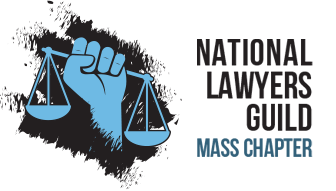LITIGATION COMMITTEE REPORT – 5/16/2022
Since 2020, the Litigation Committee of the NLG-MA Chapter has been working on a campaign to ban or severely limit the use of so-called “less-lethal” and chemical police crowd control devices, such as tear gas, rubber bullets, and pepper spray. Because of our work, three cities – Boston, Cambridge, and Somerville – have passed ordinances to this end. (Committee members Jeff Feuer, Lee Goldstein, and David Kelston were essential in this work.) Now, the Committee is broadening the campaign and advocating for the town-by-town and city-by-city adoption of ordinances similar to the ones already passed to ban or restrict the use of “less lethal” and chemical devices for crowd control.
We would like to hear from you, NLG members and allies, if you have ideas for identifying the cities and towns that should be first targeted for a “less-lethal” ban ordinance, and if you have any connections to political leaders, interested residents or mobilized groups in any city or town that might adopt a local-level law. Statewide ban proposals have floundered in recent years.
Chemical agents for crowd control are banned under international law, and many U.S. jurisdictions have banned or effectively limited the use of less-lethal devices. Somerville, Cambridge and Boston have adopted ordinances and/or police protocols which bar tear gas and limit the most destructive of the devices and procedures that police have used for crowd control. A 2020 state law and its following regulations bans chokeholds and kettling (the process of fencing in or not allowing protesters to leave an area), and all but prohibits the use of police dogs for crowd control, but only puts procedural limits the use of tear gas, pepper spray, rubber bullets, and the like. State law does not ban their use, and it remains to be seen whether the police standards commission set up by the 2020 Massachusetts Policing Reform Act will be an effective deterrent to police violence to control demonstrations.
The Litigation Committee is also working on a campaign to address the intimidating police practice of covering their uniform’s name tags or identification numbers or refusing to identify themselves upon requests. Most cities and towns in Massachusetts require police to display a name tag or identification number on their uniforms, and Massachusetts law requires police to carry an identification card and present that card to the public upon request. Litigation Committee members Daniel Donadio and Noah Meister, with the assistance of Doug Smith, have been seeking public records about name tag and ID policies and practices, as well as any complaints about or investigations into police’s covering or not displaying name tags or refusing to identify themselves on request. So far, public records requests have gone out to Boston, Springfield, Malden, Worcester, Lowell, Fall River, New Bedford and the Massachusetts State Police. New Bedford’s initial response, for example, claims to have found 257 responsive complaints within the past five years. The Litigation Committee is now challenging New Bedford’s outlandish claim to bill the requestors $7,445 to get a substantive response to their public records request.
In other news, the Litigation Committee continues to pursue public records from the Boston Police Department (BPD) and its Boston Regional Intelligence Center (BRIC) concerning police treatment and arrests of protesters responding to the “Straight-Pride Parade” in Boston in August 2019. Negotiations following a lawsuit filed by Litigation Committee members in 2021 against BPD and BRIC spurred long-delayed and heavily-redacted responses to our initial June 2020 public records request, however more complete, but by no means full, responses were supposed to arrive by mid-May.



